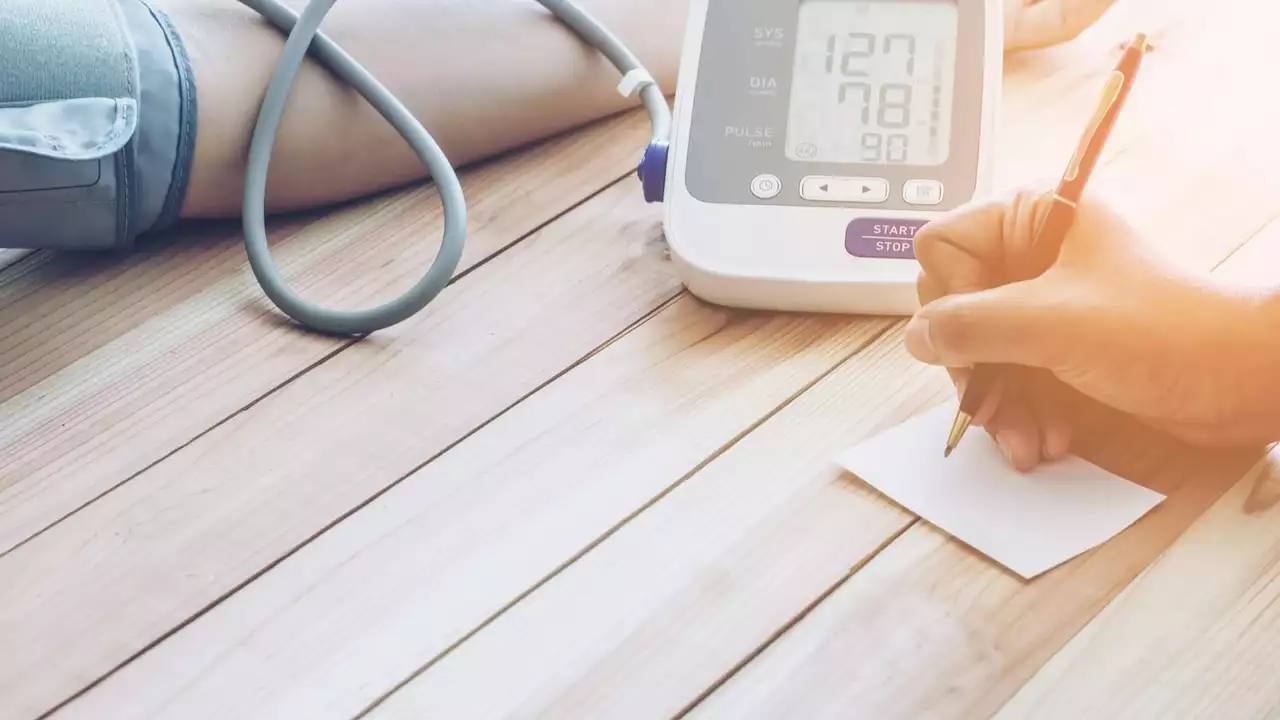Understanding Secondary Hyperparathyroidism and Hypertension
In this article, we will explore the connection between secondary hyperparathyroidism and hypertension. Both of these conditions are common and can have a significant impact on one's overall health. By understanding the relationship between these two conditions, we can better manage and prevent the complications they can cause. The following sections will delve into the causes, symptoms, and treatments for both secondary hyperparathyroidism and hypertension, and how they are interconnected.
What is Secondary Hyperparathyroidism?
Secondary hyperparathyroidism is a condition characterized by the overproduction of parathyroid hormone (PTH) by the parathyroid glands. This often occurs as a result of another underlying condition, such as chronic kidney disease or vitamin D deficiency. PTH plays a crucial role in regulating calcium and phosphorus levels in the body, so when there is an excess of PTH, it can lead to an imbalance in these minerals, resulting in various health problems.
Causes of Secondary Hyperparathyroidism
There are several factors that can contribute to the development of secondary hyperparathyroidism. Some of the most common causes include:
- Chronic kidney disease: When the kidneys are not functioning properly, they may not be able to remove excess phosphorus from the body or activate vitamin D. This can lead to high levels of PTH.
- Vitamin D deficiency: Vitamin D is essential for the absorption of calcium from the intestines. Without enough vitamin D, the body struggles to maintain adequate calcium levels, which can trigger the parathyroid glands to produce more PTH.
- Malabsorption disorders: Conditions such as celiac disease or inflammatory bowel disease can interfere with the absorption of calcium and vitamin D, leading to secondary hyperparathyroidism.
- Certain medications: Some medications, such as diuretics, can affect calcium and phosphorus levels in the body, contributing to secondary hyperparathyroidism.
Recognizing the Symptoms of Secondary Hyperparathyroidism
Secondary hyperparathyroidism can present with a variety of symptoms, some of which may be subtle and difficult to recognize. Some common signs and symptoms include:
- Weakness and fatigue
- Joint and bone pain
- Loss of appetite
- Increased thirst and urination
- Depression and memory problems
- Abdominal pain and constipation
Understanding Hypertension
Hypertension, also known as high blood pressure, is a common health condition that affects millions of people worldwide. It is a major risk factor for heart disease, stroke, and kidney disease. Blood pressure is the force of blood against the walls of your arteries, and if it becomes too high, it can damage the blood vessels and organs over time.
Connection Between Secondary Hyperparathyroidism and Hypertension
Research has shown that there is a strong link between secondary hyperparathyroidism and hypertension. Elevated levels of PTH can cause an increase in blood pressure by:
- Stimulating the production of a hormone called angiotensin II, which narrows blood vessels and increases blood pressure.
- Increasing the amount of calcium in the blood, which can cause the blood vessels to constrict and raise blood pressure.
People with secondary hyperparathyroidism are at a higher risk of developing hypertension, and managing both conditions is essential for maintaining overall health and preventing complications.
Treatment Options for Secondary Hyperparathyroidism and Hypertension
Managing both secondary hyperparathyroidism and hypertension often involves a combination of lifestyle changes and medications. Treatment options may include:
- Addressing the underlying cause: Treating the root cause of secondary hyperparathyroidism, such as kidney disease or vitamin D deficiency, can help alleviate the symptoms and reduce the risk of hypertension.
- Medications: Several medications can be used to lower blood pressure, such as ACE inhibitors, calcium channel blockers, and diuretics. In some cases, medications may also be prescribed to lower PTH levels or help the body maintain proper calcium and phosphorus levels.
- Dietary modifications: Making changes to your diet, such as reducing sodium intake, increasing potassium-rich foods, and consuming adequate amounts of calcium and vitamin D, can help manage both secondary hyperparathyroidism and hypertension.
- Exercise: Regular physical activity can help lower blood pressure and improve overall health.
Conclusion
Understanding the connection between secondary hyperparathyroidism and hypertension is crucial for managing these conditions and preventing potential complications. If you or a loved one are experiencing symptoms of either condition, it's essential to consult a healthcare professional for an accurate diagnosis and appropriate treatment plan. By addressing the underlying causes and making necessary lifestyle changes, you can take control of your health and reduce the risk of more serious health problems in the future.









Vasudha Menia
I've seen this play out with my mom after her kidney diagnosis-she was so tired all the time, and her BP kept climbing even after meds. Turns out her PTH was through the roof. Vitamin D supplements and cutting back on salt made a world of difference.
Don't ignore the small stuff, folks. Your body's trying to tell you something.
Mim Scala
This is one of those connections that gets buried under the noise of mainstream medicine. Most docs treat hypertension as a standalone issue. But if you dig into the lab work, you often find PTH spikes in resistant cases. It's not magic-it's physiology.
Bryan Heathcote
Wait, so high PTH = vasoconstriction via angiotensin II? That’s wild. So if you’re on an ACE inhibitor for hypertension and still not improving, maybe check your PTH and vitamin D? That’s a legit diagnostic blind spot. I’m gonna bring this up at my next nephrology appointment.
Snehal Ranjan
In my country we have a lot of people with chronic kidney disease due to poor access to clean water and delayed diagnosis and this condition of secondary hyperparathyroidism is very common and often ignored because the symptoms are so vague and people think it is just aging or stress or lack of sleep but it is not it is a biochemical cascade that begins with the kidneys failing to activate vitamin D and ends with the heart under siege from high blood pressure and calcium deposits in arteries and if we can catch it early with simple blood tests and cheap supplements like calcitriol and phosphate binders we can prevent so much suffering and I have seen it with my own eyes in rural clinics where the doctors are overworked but still try their best
Sabrina Aida
So we're just supposed to accept that our bodies are just poorly designed machines that leak calcium and spike blood pressure because some gland got confused?
Is this the new medical theology? PTH is the devil? Vitamin D is the holy grail?
What if the real problem is that we live in a world where we're told to fear the sun, eat processed food, and take pills for everything? Maybe the connection isn't between PTH and hypertension-it's between capitalism and human biology.
Alanah Marie Cam
Thank you for this well-structured and clinically accurate overview. I have referred several patients to endocrinology after detecting elevated PTH levels in the context of uncontrolled hypertension. The correlation is not merely statistical-it is mechanistic, reproducible, and clinically actionable. Early screening for vitamin D and serum calcium in hypertensive patients with CKD is not optional-it is standard of care.
Patrick Hogan
So let me get this straight-you’re telling me that if I stop taking my blood pressure meds and just start drinking milk and standing in the sun, my kidneys will magically fix themselves?
Wow. I’m so glad we’ve moved past science and into wellness TikTok.
prajesh kumar
This is exactly why I tell my patients: don't wait until you're in crisis. Get your vitamin D checked if you're tired all the time, have bone pain, or your BP won't budge. It's simple, cheap, and life-changing. I had a guy last month-72, on four meds, still 160/100. D level was 12. Three months later? 120/80. No new pills. Just sunlight and a $5 supplement. You don't need a miracle. You need to look closer.